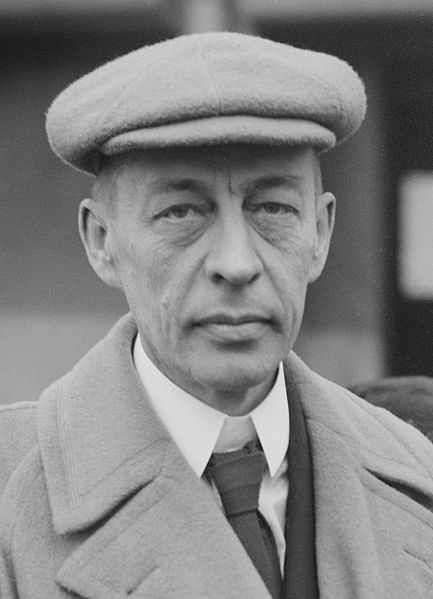
Sergei Rachmaninov
Music is enough for a lifetime, but a lifetime is not enough for music. —Sergei Rachmaninov
Here, in the third entry our new series “Composer of the Month” you may be surprised to find Rachmaninov featured so soon. We do intend to feature a variety of styles, eras, and composers of different nationalities, so expect a few surprises along the way.
Rachmaninov was immensely popular during his lifetime. His prodigous output of compositions date largely from his life in Russia. After emigrating to the West after the Bolshevik Revolution, he eventually settled in the U.S. and he made his living primarily touring far and wide as an extraordinary pianist on a par with the legendary Franz Liszt.
Around the time of Rachmaninov’s death in 1943, the music world had become obsessed with modernism. The lush, elegant, Romantic sound of Rachmaninov’s music fell out of favor with opinion-makers. But never with the public.
Certain composers may be honored for their technical mastery, their innovations, or their influence on history. Rachmaninov made his mark as a composer, pianist, and conductor, achieving prominence in all three. But he earns this early spot in our series because he is beloved by so many people unto today.

Personal Data
Dates: 1873-1943
Born: Semyonovo, Russia
Residences: Russia, Dresden,
New York, Los Angeles
Master Class
Let us begin our look at Rachmaninov’s music with an excerpt from a master class on Rachmaninov’s Cello Sonata. (We will come to a full performance of this sonata below.) Think about the amount of work and attention to detail that goes into preparing a performance of a work like this, particularly one given under the scrutiny of a master teacher.
This excerpt from the third (slow) movement will gives you a sense of Rachmaninov’s gift for melody. But his music is filled with harmonic and rhythmic power, and drama as well.
Two aural influences particularly shaped Rachmaninov’s music (and much 19th-century Russian music): the sound of Orthodox chant and the untuned church bells so prominent in every village and city before the Bolshevik Revolution dismantled Christianity.
We turn to those next.
(You must be logged into the Circle of Scholars to view the rest of this page.)
